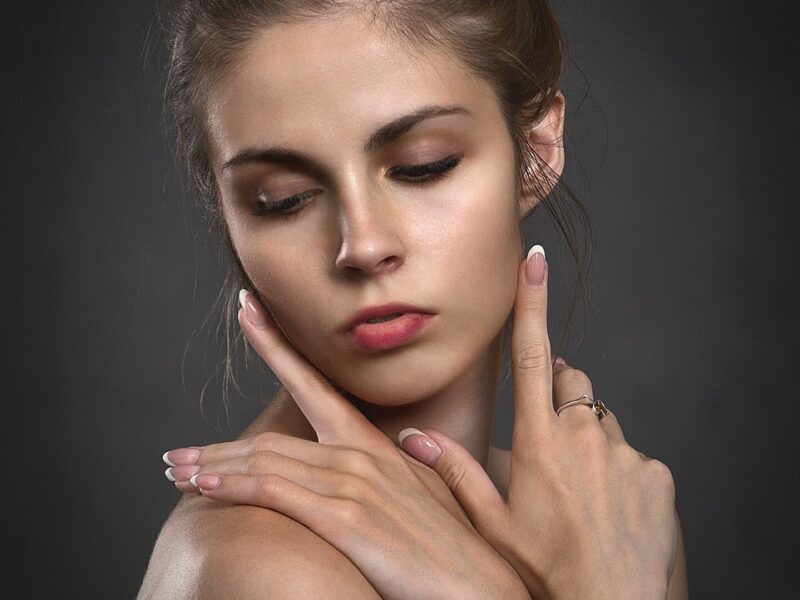As a beauty enthusiast, I have always been fascinated by the world of aesthetic skin care. The idea of achieving a flawless complexion through carefully curated products and treatments is something that resonates with many people, including myself. However, with so many options available, it can be overwhelming to know where to start. In this comprehensive guide, I will take you through every aspect of aesthetic skin care, from understanding your skin type to choosing the right products and treatments, so you can achieve the beautiful, healthy skin you deserve.
Introduction to Aesthetic Skin Care
Aesthetic skin care is a multi-billion dollar industry that encompasses a wide range of products and treatments designed to improve the appearance and health of your skin. From basic skincare routines to advanced treatments such as chemical peels and laser resurfacing, there are options available for every skin concern and budget. The goal of aesthetic skin care is to address common skin issues such as acne, fine lines, and hyperpigmentation, and to maintain the health and vitality of your skin.
Understanding Your Skin Type
Before you can begin an aesthetic skin care routine, it is important to understand your skin type. There are five basic skin types: normal, oily, dry, combination, and sensitive. Normal skin is well-balanced and not prone to dryness or oiliness, while oily skin produces excess sebum and is more prone to acne. Dry skin lacks moisture and can be flaky and itchy, while combination skin is a mix of oily and dry areas. Sensitive skin is easily irritated and can be prone to redness and inflammation.
Once you have determined your skin type, you can choose products and treatments that are tailored to your specific needs. For example, if you have oily skin, you may want to look for products that contain salicylic acid to help control oil and prevent breakouts. If you have dry skin, you may want to look for products that contain hyaluronic acid to help hydrate and plump the skin.
Common Skin Issues and Their Causes
There are a number of common skin issues that people experience, and understanding the causes behind them can help you choose the right products and treatments to address them. Acne, for example, is caused by a combination of excess oil production, bacteria, and inflammation. Fine lines and wrinkles are caused by a decrease in collagen production as we age, while hyperpigmentation can be caused by sun damage or hormonal changes.
Other common skin issues include dark circles, puffiness, and dry, rough skin. By identifying the underlying causes of these issues, you can choose products and treatments that will effectively address them.
The Importance of a Skincare Routine
One of the most important aspects of aesthetic skin care is establishing a consistent skincare routine. A good skincare routine can help to maintain the health and vitality of your skin, and prevent common skin issues from developing. A basic skincare routine should include cleansing, toning, and moisturizing, as well as SPF protection during the day.
Cleansing is important to remove dirt, oil, and makeup from the skin, while toning can help to balance the pH of the skin and prepare it for the next steps in your routine. Moisturizing is important to hydrate the skin and prevent dryness, while SPF protection is essential to prevent sun damage and premature aging.
Essential Steps for a Basic Skincare Routine
A basic skincare routine should include the following steps:
- Cleansing: Use a gentle cleanser to remove dirt, oil, and makeup from the skin.
- Toning: Apply a toner to balance the pH of the skin and prepare it for the next steps in your routine.
- Moisturizing: Apply a moisturizer to hydrate the skin and prevent dryness.
- Sun Protection: Apply a broad-spectrum SPF to protect the skin from harmful UV rays.
By following this simple routine every day, you can help to maintain the health and appearance of your skin.
Advanced Skincare Techniques for a Flawless Complexion
For those looking to take their skincare routine to the next level, there are a number of advanced techniques that can help to improve the appearance of your skin. Chemical peels, for example, involve applying a solution to the skin to exfoliate and improve texture and tone. Microdermabrasion is another technique that involves using a small, handheld device to buff away dead skin cells and reveal smoother, brighter skin.
Other advanced techniques include laser resurfacing, dermaplaning, and microneedling. These treatments are typically performed by a skincare professional and can help to address specific skin concerns such as acne scars or fine lines and wrinkles.
Aesthetic Treatments for Skin Rejuvenation
In addition to advanced skincare techniques, there are a number of aesthetic treatments available for skin rejuvenation. Botox and dermal fillers, for example, can help to smooth out fine lines and wrinkles and restore volume to the face. Chemical peels, as mentioned earlier, can help to improve texture and tone, while laser resurfacing can help to address pigmentation issues and improve overall skin quality.
Other popular aesthetic treatments include microblading, which involves tattooing eyebrows to create a more defined and natural look, and eyelash extensions, which can add volume and length to your natural lashes.
Latest Trends in Aesthetic Skin Care
The world of aesthetic skin care is constantly evolving, and there are always new trends and techniques to keep an eye on. One of the latest trends is the use of CBD in skincare products. CBD is a non-psychoactive compound found in hemp plants that has been shown to have anti-inflammatory and antioxidant properties. It is believed to be beneficial for a range of skin issues, including acne, psoriasis, and eczema.
Other popular trends include the use of probiotics in skincare products, which can help to balance the microbiome of the skin, and the use of facial rollers and gua sha tools to improve circulation and lymphatic drainage.
Ingredients to Look for in Skincare Products
When choosing skincare products, it is important to look for ingredients that are specifically designed to address your skin concerns. Some common ingredients to look for include:
- Retinoids: These vitamin A derivatives can help to reduce the appearance of fine lines and wrinkles, and improve overall skin texture.
- Vitamin C: This powerful antioxidant can help to brighten the skin and improve collagen production.
- Hyaluronic Acid: This hydrating ingredient can help to plump and firm the skin, reducing the appearance of fine lines and wrinkles.
- Salicylic Acid: This beta-hydroxy acid (BHA) can help to control oil production and prevent breakouts.
- Glycolic Acid: This alpha-hydroxy acid (AHA) can help to exfoliate the skin and improve texture and tone.
By choosing products that contain these ingredients, you can effectively address your skin concerns and improve the overall health and appearance of your skin.
Choosing the Right Aesthetic Skincare Products
With so many skincare products available, it can be difficult to know where to start. When choosing skincare products, it is important to look for products that are specifically designed for your skin type and concerns. It is also important to choose products that are free from harsh chemicals and fragrances that can irritate the skin.
When choosing skincare products, look for those that contain high-quality, effective ingredients, and avoid products that contain potentially harmful ingredients such as parabens, sulfates, and phthalates. It is also important to choose products that are cruelty-free and environmentally friendly.
Lifestyle Changes for Healthy Skin
In addition to skincare products and treatments, there are a number of lifestyle changes you can make to improve the health and appearance of your skin. Eating a healthy, balanced diet that is rich in antioxidants and nutrients can help to nourish the skin from the inside out. Drinking plenty of water can also help to hydrate the skin and prevent dryness.
Getting enough sleep is also important for healthy skin, as it allows the body to repair and regenerate overnight. Exercise can help to improve circulation and promote lymphatic drainage, which can help to reduce puffiness and improve skin tone.
Finding the Right Aesthetic Skincare Professional
If you are interested in more advanced skincare techniques or aesthetic treatments, it is important to find the right skincare professional. Look for a licensed and experienced professional who specializes in the treatments you are interested in. Read reviews and ask for referrals from friends or family members who have had similar treatments.
During your consultation, be sure to ask any questions you may have and discuss your skincare concerns and goals. A good skincare professional will work with you to develop a customized treatment plan that addresses your specific needs.
Conclusion: Achieving Beautiful, Healthy Skin
Achieving beautiful, healthy skin is a journey that requires commitment and consistency. By understanding your skin type, choosing the right products and treatments, and making lifestyle changes that support healthy skin, you can achieve the beautiful, radiant complexion you deserve. Whether you prefer a simple skincare routine or more advanced treatments, there are options available that can help you achieve your skincare goals. With the right approach and the help of a trusted skincare professional, you can unlock the secrets of aesthetic skin care and enjoy the benefits of beautiful, healthy skin.
CTA: Are you ready to take your skincare routine to the next level? Contact us today to schedule a consultation with one of our licensed skincare professionals and learn more about the latest aesthetic skincare treatments and techniques.


